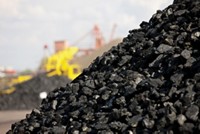Advertisement
Grab your lab coat. Let's get started
Welcome!
Welcome!
Create an account below to get 6 C&EN articles per month, receive newsletters and more - all free.
It seems this is your first time logging in online. Please enter the following information to continue.
As an ACS member you automatically get access to this site. All we need is few more details to create your reading experience.
Not you? Sign in with a different account.
Not you? Sign in with a different account.
ERROR 1
ERROR 1
ERROR 2
ERROR 2
ERROR 2
ERROR 2
ERROR 2
Password and Confirm password must match.
If you have an ACS member number, please enter it here so we can link this account to your membership. (optional)
ERROR 2
ACS values your privacy. By submitting your information, you are gaining access to C&EN and subscribing to our weekly newsletter. We use the information you provide to make your reading experience better, and we will never sell your data to third party members.
Environment
Rise In Greenhouse Gas Emissions
Global release of 31.6 billion metric tons of carbon dioxide in 2011 is a record, International Energy Agency says.
by Cheryl Hogue
June 1, 2012
| A version of this story appeared in
Volume 90, Issue 23
Annual carbon dioxide emissions from worldwide burning of fossil fuels reached a record high of 31.6 billion metric tons in 2011, according to preliminary estimates announced in late May by the International Energy Agency (IEA). The 2011 releases are up 3.2%, or 1.0 billion metric tons, over 2010’s CO2 emissions, IEA says.
The country contributing most to this increase was China, the world’s largest emitter of CO2, IEA says. China’s CO2 emissions in 2011 were up 9.3%, or 720 million metric tons, from 2010.
This jump was primarily a result of increased burning of coal in China. But the rise would have been higher if China had not cut the amount of CO2 emitted per unit of its gross domestic product—a measure called carbon intensity—by 15% between 2005 and 2011, IEA reports.
“What China has done over such a short period of time to improve energy efficiency and deploy clean energy is already paying major dividends to the global environment,” says Fatih Birol, IEA’s chief economist.
The U.S., the world’s second-largest emitter, saw its CO2 releases from the burning of fossil fuels drop 92 million metric tons, or 1.7%, from 2010, IEA says. The decrease is primarily the result of a switch from coal to natural gas for power generation and a mild winter, which diminished energy demand for heating.
Since 2006, U.S. emissions have fallen by 7.7%, or 430 million metric tons, the organization says. The five-year reduction is the largest anywhere in the world, IEA says. It is due to improvements in transportation efficiency, higher oil prices, and the economic downturn, IEA says.





Join the conversation
Contact the reporter
Submit a Letter to the Editor for publication
Engage with us on Twitter